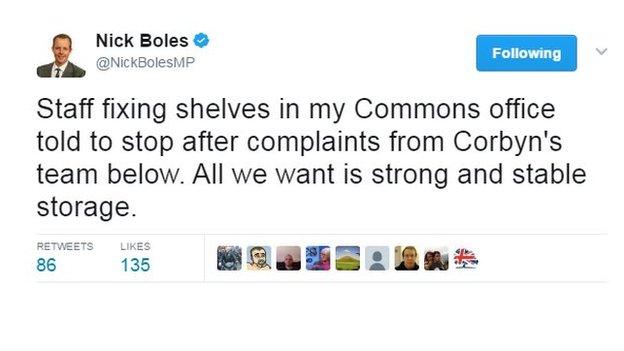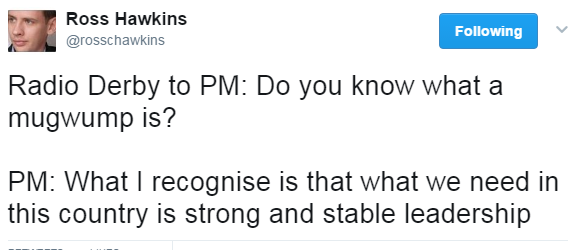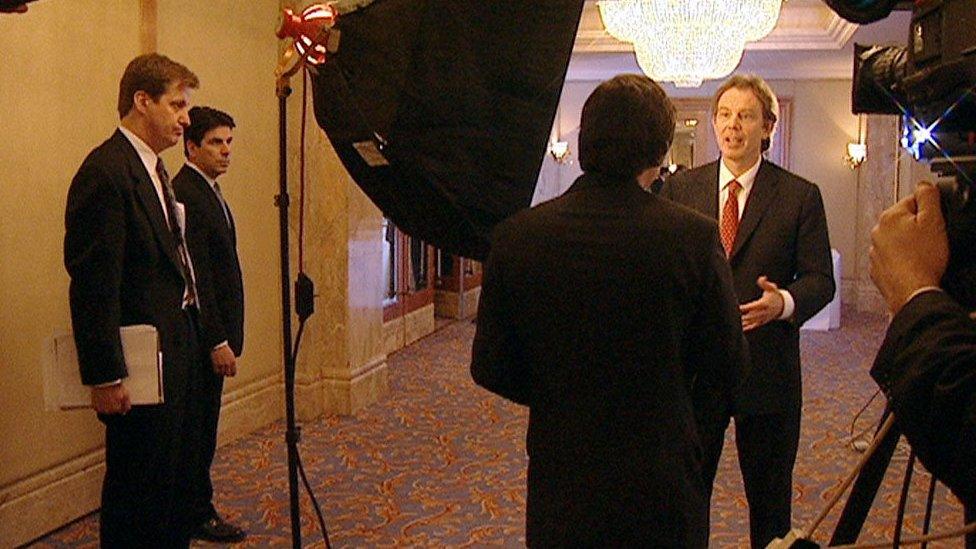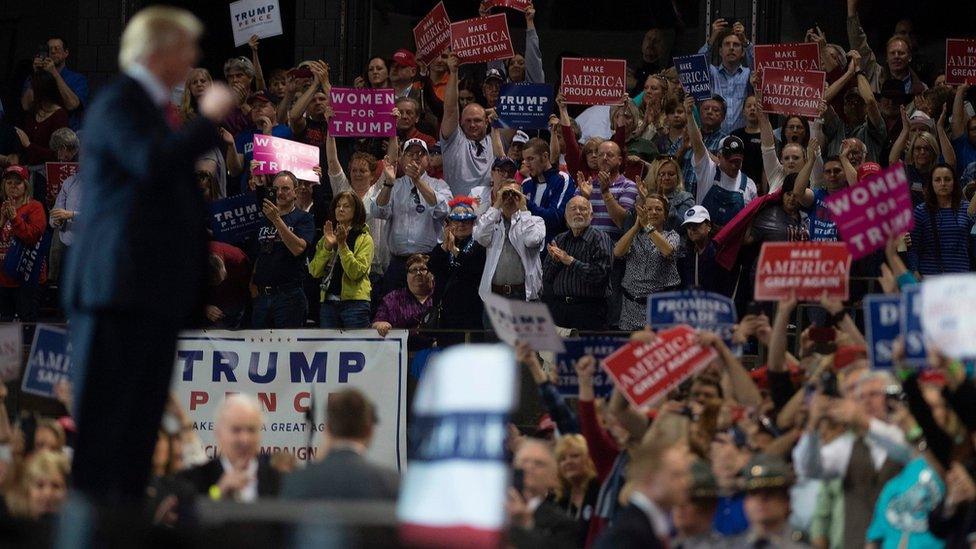'Strong and stable' - Why politicians keep repeating themselves
- Published
The prime minister sticks relentlessly to her "strong and stable" slogan
As the general election approaches, MPs start to repeat themselves. Over and over again. In every interview. Why do they do it?
The final Prime Minister's Questions before the general election had just finished when an exasperated Paul Flynn asked the Speaker whether a microchip had been planted into Tory MPs that makes them say the words "strong and stable" every 18 seconds.
The veteran Labour MP had a point - the Conservatives' slogan had just been used 16 times, including a hat-trick of mentions inside a single question by backbencher Michael Fabricant.
In the 10 days since the general election was announced (with a speech outside 10 Downing Street containing three "strong and stables"), it's cropped up 25 times in the House of Commons.
It's also been crowbarred into interviews by Tory MPs and ministers, repeated in speeches and tweeted endlessly.
Mrs May used it seconds into her first stump speech of the campaign, in Bolton - and then, in case anyone missed it, another 11 times.
Laura Kuenssberg: PM sticks to script as Boris Johnson enters election fray
Rival parties have attempted to turn the tactic on its head and use it in their attacks on the government.
So why are we subjected to such a barrage?

Some MPs have found creative ways to plug their slogan

Things can get a bit surreal on the campaign trail
A clue lies in the calculation by Barack Obama's campaign manager Jim Messina, who has reportedly been hired by Theresa May's election team. He has said voters only spent four minutes a week thinking about politics.
So politicians keep saying their key messages in the hope that they will squeeze into that four-minute window.
As a result, anyone tasked with following campaigns in detail ends up repeating phrases like "long-term economic plan" and "cost of living crisis" in their sleep.
"You have to do it over and over again," says Tony Blair's former director of communications Lance Price.
"It doesn't matter that journalists are sick and tired of hearing it - the point is that voters have to hear it a lot before it sinks into their subconscious and starts to have some resonance."
A phrase doesn't need to mean much, he thinks.

Tony Blair's team championed the "on message" campaign style
"Blair would say 'the future, not the past' - which was almost completely meaningless, but he said it over and over again and it portrayed the Tories as harking back to the past, while Labour was shiny and new."
It's safe to say that Jeremy Corbyn, who promised a "new kind of politics" on becoming leader, has not followed the New Labour playbook.
He tested out some punchy phrases in that final PMQs (saying the Tories were "strong against the weak and weak against the strong") but Labour has so far not adopted the relentless repetition approach.
PR expert Mark Borkowski is not impressed by what he calls "simplified electioneering", saying that while people might be "hypnotised by the repetitive, simple nature of it", it could increase cynicism about politicians among voters who have had enough of elections.
"It's fashionable to think they can control the message with a single word, but I think people want more," he said.
"If anything it's going to do more to perpetuate election ennui."
'Lost art'
He's not alone in wishing for more substantial speeches.
"The party machine is too risk-averse to countenance real speech," complained classics professor Mary Beard before the last general election.
"In ancient Greece and Rome, on the other hand, the art of rhetoric was at the heart of political life.
"Recapturing some of that lost art might be a good idea, and might get us beyond pretty much indistinguishable soundbites."

But for Mr Borkowski, the US election, and Donald Trump's promise to "make America great again", is helping shape this campaign.
"Everybody seems to be completely obsessed with the success of Trump," he says.
"Although people won't admit it, they are very close to actually mimicking what they think was successful for him."
We won't know for another six weeks what has worked for the UK's political leaders - which leaves plenty of time for more "strong and stables" to be hurled our way.